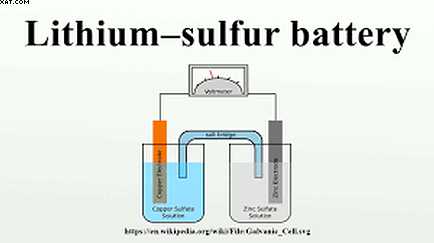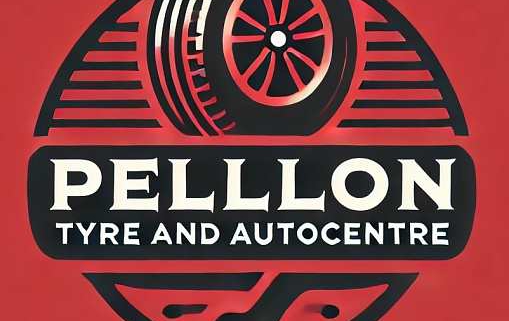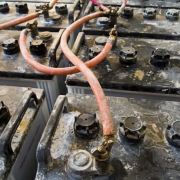Lithium-Sulphur Battery
Table of Contents
Lithium-Sulphur Battery

Lithium-Sulphur Battery
Researchers at Oak Ridge National Laboratory are hot on the trail of a lithium-sulfur battery that packs four times the punch of conventional lithium-ion batteries.
Eric Roberts‘s insight:
Is the lithium-ion battery under threat from the lithium-sulphur battery?
A battery has been developed by the Oak Ridge National Laboratory. One of the USA-owned Department of Energy scientific facilities (ORNL for short).
This new battery has been developed using a chemical that we all know as sulphur. Which is a very abundant and low-cost material. The new battery has been tested as having at least four times the energy density as the new one that now powers many of our electric products, the Lithium-Ion Batteries.
Scientists at the ORNL facility. I have been able to use new types of sulphur-rich materials. Consequently, we were then able to join the new type of sulphur cathode. With a lithium anode and a solid electrolyte material.
So, to produce an energy-dense solid type,. Because the scientists have used sulphur in the resulting product,. Of course, it is much safer and more cost-effective than lithium-Ion batteries. Hence, it is in use at the moment. It was considered to be a great breakthrough.
Examining the Possibilities of Lithium-Sulphur Batteries:
A Revolution in the UK Market?
Hi friends! You’ll want to learn about the newest development in battery technology, the lithium-sulphur (Li-S) battery, if you’re as passionate about batteries as I am. It appears to be bringing excitement to everything, including electric cars and cell phones.
Let’s explore why the lithium-ion battery has the potential to be a game-changer and how it might completely transform the landscape of green technology in the future.
Why sulphur and lithium?
Lithium-ion batteries are fantastic, all right. For years, they have functioned like a dream, powering our devices and electric cars. Like anything worthwhile, though, there is always space for growth. Here are lithium-sulphur batteries, which claim to be superior to their lithium-ion counterparts in a number of crucial areas.
Notably, since sulphur is more plentiful than the cobalt used in lithium-ion batteries, they may be less expensive to build. We’re talking about increased energy density, which translates to longer battery life.
A Slight Tech Talk—But Not Too Much of It!
The anode in lithium-sulphur batteries is lithium, and the cathode is sulphur. Approximately four times more energy density than lithium-ion batteries is possible with this combination! Without stopping for refuelling, it would be possible to travel from London to Edinburgh in an electric car in the future, made possible by Li-S technology.
However, and there’s always a but, they’ve experienced some teething problems. They deteriorate more quickly than lithium-ion batteries, mostly because of sulphur’s breakdown when it interacts with lithium during charging and discharging. It is comparable to having amazing shoes that become worn out after only a few wears.
Right now, where are we?
Scholars, including some very smart people here in the UK, are putting a lot of effort into addressing these issues. As we speak, innovations are being made to stabilise the battery’s chemistry and extend its longevity. Universities and tech companies in Britain are conducting research to find ways to increase the longevity and commercial viability of Li-S batteries.
A Look Towards the Future
Imagine living in a world where charging an electric car takes less time than making a cup of coffee or where a smartphone can run for days on a single charge. That is the world that lithium-sulphur technology has the potential to build. And Li-S batteries may be essential to powering our future sustainably, given the UK’s aim for greener technologies and lower carbon footprints.
Connecting the Dots with Regional Charm
Let us remember the local heroes of this technological revolution as we draw closer to this bright future. Local inventiveness is what’s propelling global change, from the colleges located in our ancient cities to the tiny tech clusters dispersed around the nation. Selling batteries isn’t the only goal; we also want to fuel innovation on this verdant, peaceful land.
That’s it:
Lithium-sulphur batteries are becoming more and more popular, offering a more sustainable, effective, and long-lasting power source for all of our demands. Both eco-warriors and IT enthusiasts should be excited about this time. The future of batteries is bright and full of possibilities, so keep an eye out!
Good luck, and never forget that the correct battery can make all the difference in your home, automobile, or portable electronics. Continue buzzing and remain energised!Sulphur comes from waste
The sulphur that is used is a waste product from the petro-chemical industry and so is almost free of charge. This makes it possible to re-cycle a waste product (sulphur) into a useful new battery.
The new batteries are not on the market just yet. But a patent has been applied for. Subsequently, it is thought that this excellent new invention will be available. Naturally, for commercial purposes in the near future.
One of the problems that the scientists
have come across the fact that lithium-sulphide battery compounds can leak out from where they should be, which causes the battery charge to deteriorate. The researchers set out to find a way to restrain these escaping compounds.
To get around the problem, the scientists have made very small, hollowed shells out of a type of carbon, which will conduct the element. The researchers then coated them with a film of polymer to help keep the Li-S compounds inside.
- Electric Cars More dangerous
- Peugeot Exhaust MOT Fail
- Continental Van Eco Tyres
- Airless Tweel Wheel Tyre
- Alloy Wheels on Vans
See on cleantechnica.com

